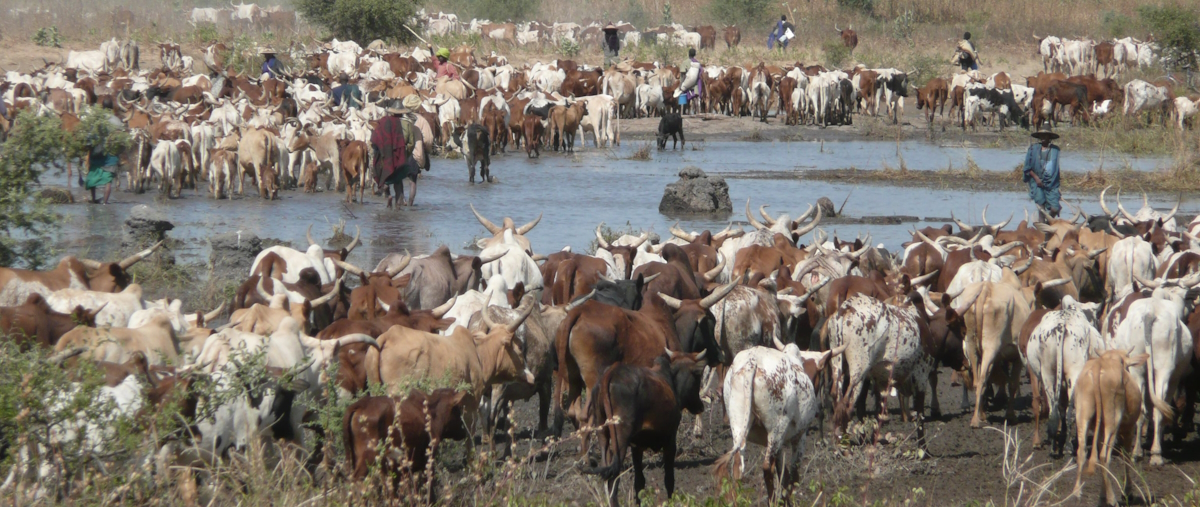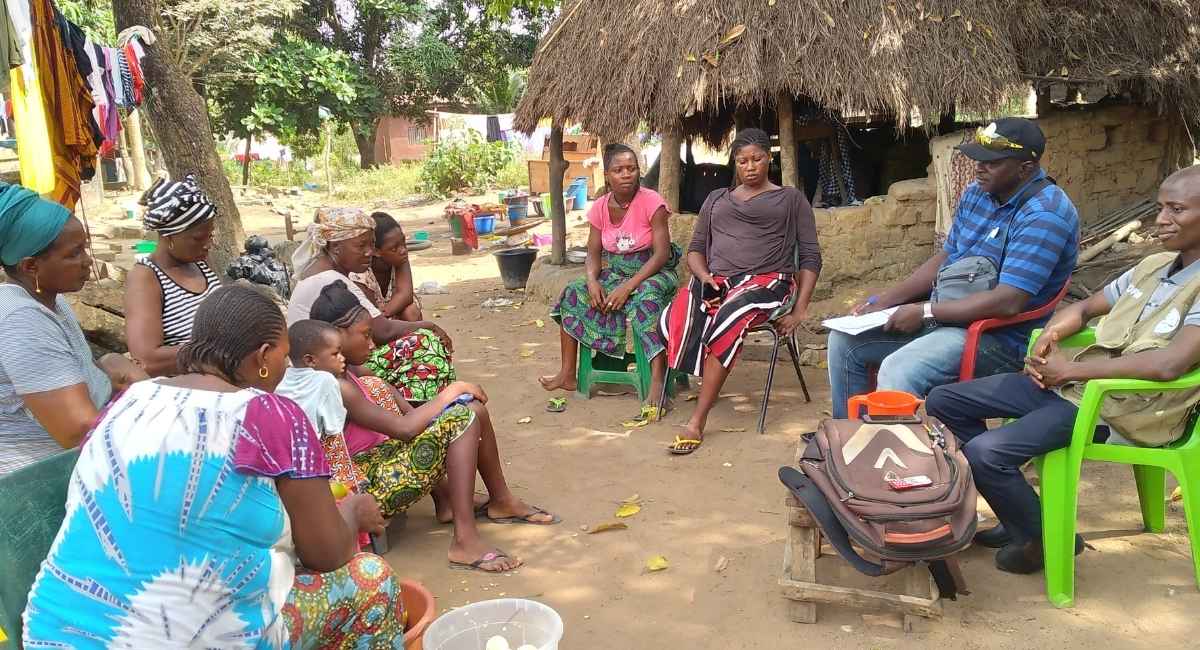In West Africa and Madagascar, governance of rural territories is marked by decentralisation reforms that are rooted in historic, political and legal processes and contexts that have influenced land tenure policy trajectories. After countries became independent, land tenure legislations were still mainly influenced by the colonial heritage and the land titling system. This system of recognition of private property rights by the central State, which records land titles in the land register, generated exclusion: above all else, it served the interests of colons and recognised rights to land only for those possessing titles. It is at the polar opposite of traditional conceptions of land, which, on the contrary, are based on a social will to include and enable everyone to have access to land and its resources to improve families’ living conditions.
Reforms that began in the 1990s attempted to reconcile legitimacy (local systems of social recognition of customary rights that are continually evolving to adapt to new situations) and legality (State law). To do this, they were based on decentralisation processes in order to bring decision-making centres and stakeholders in territories closer together. A certain number of prerogatives were transferred to regional authorities and local communities to ensure provision of local services for recognition and securing of land tenure rights.
Although the trajectories taken by different countries are varied, there are common constraints and difficulties that hamper the missions assigned to local authorities and the construction of their legitimacy vis a vis other local stakeholders. Local land tenure management is made even more complex by increased tensions and the rising socio-political and security crises in the Sahel.
The setting up of rural communes in decentralisation processes often took place without clarification of the issue of land tenure and municipal boundaries. In rural areas in Mali, Burkina Faso and Senegal, the focus was solely on identification of villages making up the local authority. This cautious attitude was undoubtedly related to the fear that such a clarification would trigger a process of disputes that would lead to a weakening of social cohesion between neighbouring communes.
In addition to these constraints, other difficulties hinder the conduct of the missions assigned to territorial authorities. Among these, poor resources or lack of transparency in management of local affairs and the incapacity of the territorial administration to coordinate governmental action at a decentralised level.
Construction of territorial authorities’ land tenure legitimacy
Whatever the approach taken, decentralisation policies highlighted the problem of constructing territorial authorities’ land tenure legitimacy vis a vis village and inter-village entities. These local customary governance bodies in fact continue to play an important role in management of natural resources, in particular of collective land. The development of local capacities for dialogue and negotiation took place in contexts where a single space is exploited for multiple uses: agriculture, livestock farming, fishing, picking, etc. This diverse range of needs and interests underpins multiple layers of rights of access and use, which customary institutions seek to regulate, in order to take account of the needs and uses of all those who avail of natural resources.
From grass-roots communities’ point of view, the allocation of significant land management prerogatives to territorial authorities constitutes de facto a measure to distance the place of decision-making from local users of rural spaces. The introduction of a new institutional stakeholder capable of establishing an unequal balance of power to the detriment of customary authorities, can also sometimes be perceived as a threat. This is the case when municipal councils allocate land rights for significant plots to private operators, without local communities being consulted or being able to collectively define the conditions in which such operations could be envisaged.
Characteristics that are inherent to situations of institutional pluralism and the complex state of play between stakeholders in the land tenure system therefore require a nuanced approach in contexts where “logics of sedimentation” or “layering” of institutions, norms and rules generate constraints, in relation to the arbitrary behaviour of some local elites and mutations that affect customary institutions.
However, local authorities’ new responsibilities can sometimes be turned into advantages. Particularly with the construction of negotiation strategies aimed at reaching an agreement on land tenure rules and procedures, and on stable forms of coordination. These respond to a certain erosion of customary authorities’ legitimacy. The latter can be attributed to the supposed or real partiality of these institutions in favour of land speculators, and to the existence of corrupt practices that are often denounced by rural producers. Or, to some customary institutions’ propensity to play along with the State because of political allegiance, instead of defending the interests of their communities. The weakening of intergenerational links is another reason for this erosion, in a context where a decrease in family land reserves – a source of worry for the future of young rural people – is exacerbated by the emergence of formal and informal land markets. In some highly sought-after areas such as peri-urban areas, collusion between customary authorities and land administration services is strongly denounced, as was the case for example during national debates organised as part of the Convention on land held in Guinea.
At another level, local land governance bodies are facing the challenge of increased and conflictual competition between stakeholders for control and use of land. This situation explains the fact that numerous countries are placing considerable focus on formalisation of access to land and land transactions, mainly in areas where land pressure is maintained by the growth of land markets: peri-urban areas, territories with a high level of potential, etc. As with the reform underway in Madagascar since 2005, legal innovations can be used to propose “land certificates” that are a lot more accessible than land titles, and can be useful when procedures for recognition of agreements made by private deed seem insufficient. Land certificates provide procedures for official recognition of local rights via land services based in communes that can be useful when a greater need to secure land tenure is perceived: this can be the case when land is purchased, to secure the inheritance of widows who fear the land they use will be taken back by their family-in-law, etc.
Access to land, a major determinant in the security crisis in the Central Sahel
The issue of land tenure alone does not explain the increased violence in the territories impacted by the socio-political and security crisis currently affecting Mali, Niger and Burkina Faso, and threatening coastal countries. But it does partly explain it, as it is a source of different legitimacies, featuring major productive, territorial, political and identity dimensions.
Increased tensions and the amplification of socio-political and security crises generate direct and indirect effects on land tenure that contribute to significant complexification of local land management: forced displacements, reorganisation of transhumance itineraries, reconfiguration and in some cases undermining of customary authorities, resignation of local elected representatives, questioning of land tenure agreements, weakening of inter-community social connections, etc.
These mutations are accompanied by dynamics of exclusion and concentration of land rights, such as withdrawal of land, occupation of land belonging to displaced people, acceleration of the process of land commodification around sites receiving victims of forced displacement, tensions around identity, etc. In such a context, it is necessary to question the effectiveness of local land governance models and instruments developed in the different countries.
Far from technical approaches, the challenges of improving local land governance are more than ever linked to the need to strengthen social cohesion between stakeholders in territories in all their diversity, to rebuild intergenerational links based on solidarity mechanisms and obligations, and above all to re-establish a social pact between States, local authorities and citizens around the principles of social justice to reinvent new ways of living together.
The reflections contained in this article are the result of discussions that took place during the last seminar held in March 2023 by the “Land tenure & Development” Technical Committee (LT&DTC) in Saint Louis, in Senegal. This seminar was attended by more than 70 participants, including civil society stakeholders, experts from land administrations, academics and researchers, who shared analyses and experiences conducted in their respective countries: Benin, Burkina Faso, Côte d’Ivoire, Guinea, Senegal, Madagascar, Mali and Niger.
The purpose of the LT&DTC, for which GRET ensures the secretariat and coordination of scientific activities, is to generate debates and inform reflection and actions by land policy stakeholders and their partners in a range of countries and continents. It works for recognition of a multiplicity of land rights and uses, and the need for multi-stakeholder dialogue on land issues.





